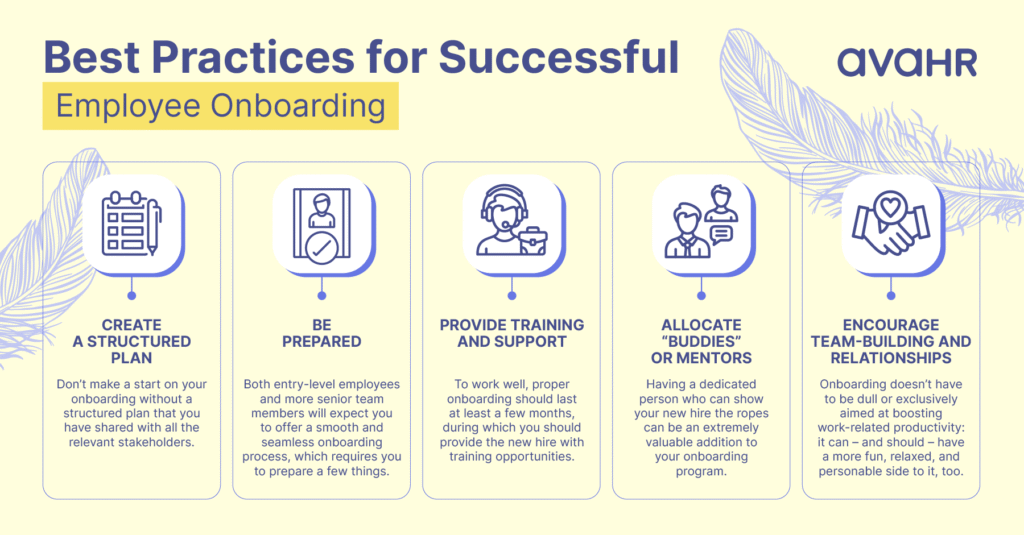Starting a new job is an exciting time filled with anticipation and fresh opportunities. One of the first steps you’ll encounter is onboarding, a process designed to welcome you to the company and equip you for success. While onboarding signifies your official entry into the organization, it’s essential to understand that it doesn’t automatically guarantee permanent employment.
This article will delve into the intricacies of onboarding, exploring its purpose, stages, significance, and the crucial distinction between onboarding and job security. By understanding these nuances, you can navigate your new role with clarity and confidence.
What is Onboarding?
Onboarding is a structured program implemented by companies to integrate new employees into their work environment. It’s a comprehensive process that encompasses various aspects, from administrative tasks to training and introductions to colleagues. Essentially, onboarding aims to make the transition into a new role as smooth and seamless as possible.
Think of onboarding as your official welcome package. It includes essential information about company policies, procedures, benefits, and culture. You’ll likely participate in orientation sessions, meet key personnel, and receive training specific to your role. Onboarding also involves setting clear expectations, outlining performance goals, and providing the necessary tools and resources for success.
The duration of onboarding varies depending on the company size, industry, and complexity of the role. Some companies may have a formalized program spanning several weeks or even months, while others may adopt a more gradual approach. Regardless of the timeframe, onboarding serves as a crucial foundation for your professional journey within the organization.
Onboarding Process
The onboarding process typically unfolds in stages, each designed to address specific aspects of your integration into the company. While the exact steps may differ between organizations, common elements include:
- Pre-boarding: This stage begins before your official start date and involves administrative tasks like paperwork completion, benefits enrollment, and IT setup.
- Orientation: You’ll receive a comprehensive overview of the company, its mission, values, culture, and organizational structure.
- Departmental Introductions: You’ll meet your team members, supervisors, and key stakeholders within your department to establish connections and understand your role within the larger team.
Role-Specific Training: This involves learning the specific skills, tools, and procedures required for your job responsibilities.
Performance Expectations: Your supervisor will clearly outline performance goals, expectations, and feedback mechanisms to ensure you’re aligned with company objectives.
- Ongoing Support: Even after the initial onboarding period, you’ll likely have access to mentors, resources, and support systems to help you navigate your role and address any challenges.
Importance of Onboarding
Effective onboarding is crucial for both new employees and the organization as a whole.
For new hires, it provides a sense of belonging, clarity about expectations, and the necessary tools to succeed. A well-structured onboarding program can significantly reduce anxiety, boost morale, and increase engagement from day one.
From the company’s perspective, successful onboarding leads to improved employee retention, reduced turnover costs, and increased productivity. When new employees feel welcomed, supported, and equipped for success, they are more likely to thrive in their roles and contribute positively to the organization.
Job Security and Onboarding
While onboarding is a positive step towards your employment journey, it’s essential to remember that it doesn’t guarantee permanent job security.
Does onboarding mean i got the job? No, onboarding signifies that you have officially joined the company and are moving forward in the hiring process. However, companies may still evaluate performance during the probationary period or make adjustments based on business needs.
It’s important to approach your new role with a proactive mindset, consistently demonstrate your value, and maintain open communication with your supervisor. By exceeding expectations and actively contributing to the team, you can strengthen your position within the organization and increase your chances of long-term employment.
Conclusion
Onboarding is a vital process that sets the stage for success in a new role. It provides essential information, training, and support to help you integrate into the company culture and effectively perform your duties. While onboarding signifies your official entry into the organization, it’s crucial to understand that it doesn’t automatically guarantee permanent employment.
By actively engaging in the onboarding process, demonstrating your value, and maintaining open communication with your supervisor, you can lay a strong foundation for a successful and fulfilling career within the company.



